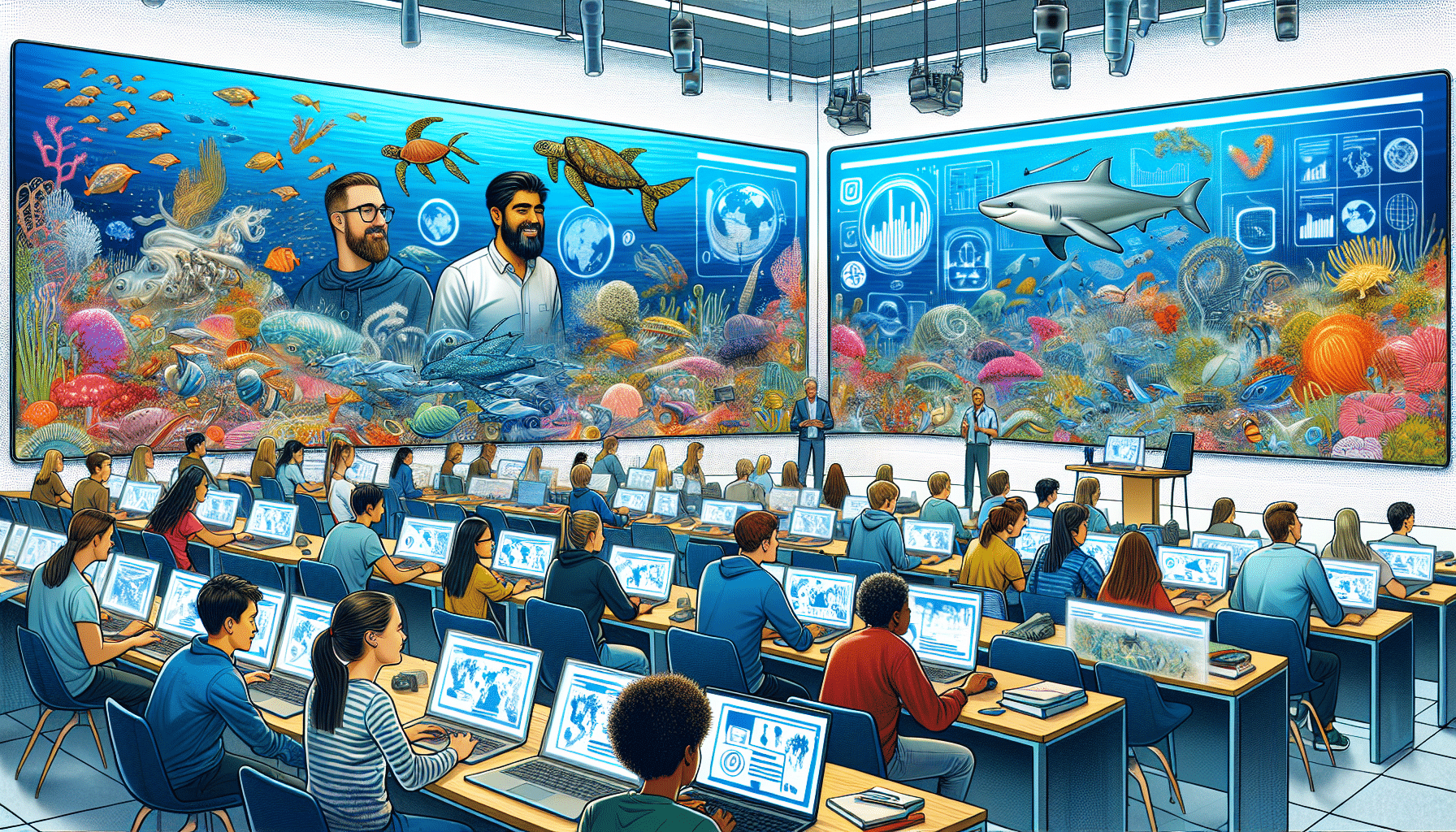Introduction to Online Courses in Marine Sustainability
Marine sustainability focuses on the protection and enhancement of our ocean’s ecosystems, addressing challenges such as overfishing, habitat destruction, and pollution. With the increasing concern for ocean health, education in this field has become more accessible through online courses. These courses offer opportunities for students, professionals, and environmental enthusiasts to gain deep insights and practical skills to advocate for and act toward marine conservation.
Benefits of Studying Marine Sustainability Online
Online education in marine sustainability provides several advantages. Flexibility is a significant benefit, allowing learners to engage with course material around their schedule, making it feasible for working professionals to enhance their qualifications without disrupting their current roles. Distance learning platforms also open access to leading expertise and resources that might otherwise be geographically inaccessible, involving instructors from across the globe who are leaders in marine science and policy.
Key Topics Covered in Marine Sustainability Courses
Online courses in marine sustainability cover a broad spectrum of topics. Here are some of the critical areas of focus:
- Marine Ecology: Understanding the relationships among marine organisms and their interactions with their environments.
- Conservation Techniques: Hands-on approaches and policies for the preservation of marine life and ecosystems.
- Sustainable Fisheries Management: Practices that ensure fish populations and habitats remain viable and productive for future generations.
- Marine Pollution: Study of pollutants in oceans and strategies to mitigate this widespread issue.
- Climate Change and Oceans: Exploring the impacts of climate change on marine environments and biodiversity.
Structure and Delivery
Courses often blend video lectures, readings, quizzes, and projects to create an engaging learning environment. Interactive platforms may also integrate forums or discussion boards to encourage collaboration and discussion among peers and instructors.
Choosing the Right Online Course
When selecting an online course in marine sustainability, consider the following factors:
- Accreditation: Ensure that the program or the institution offering the course is recognized by educational authorities.
- Faculty Expertise: Research the instructors’ backgrounds to ensure they have relevant experience and qualifications in marine sustainability.
- Curriculum Relevance: Look for courses that cover the most urgent and relevant topics in marine conservation today.
- Practical Skills: Choose courses that offer practical learning opportunities, which can be beneficial for applying the knowledge in real-world situations.
- Peer and Network Opportunities: Some courses provide means to connect with peers and professionals in the field, which can be invaluable resources for future career or activism endeavors.
Top Institutions and Platforms Offering Courses
Many reputable universities and online platforms offer courses in marine sustainability. These include:
- Coursera: Partners with global universities to offer courses that often include free auditing options.
- EdX: Provides courses authored by universities such as Harvard and MIT, with options for verified certificates.
- The Open University: Offers a range of distance learning courses related to environmental sciences and conservation.
- Australian National University: Known for its research and courses in environmental policy and science, including marine sustainability.
Online courses in marine sustainability are an excellent path for those looking to start or enhance a career in marine conservation, policy-making, or research. These courses not only provide education but also foster a global community of learners and practitioners dedicated to protecting marine life and ecosystems. By engaging in these studies, individuals contribute to a much-needed global effort to nurture and sustain our oceans for future generations.




